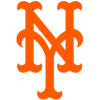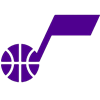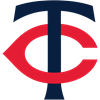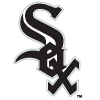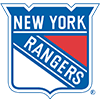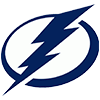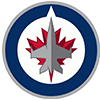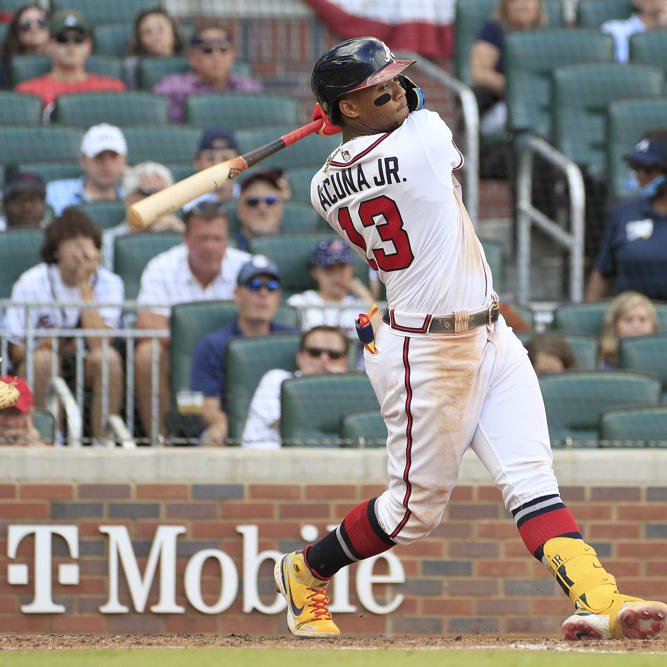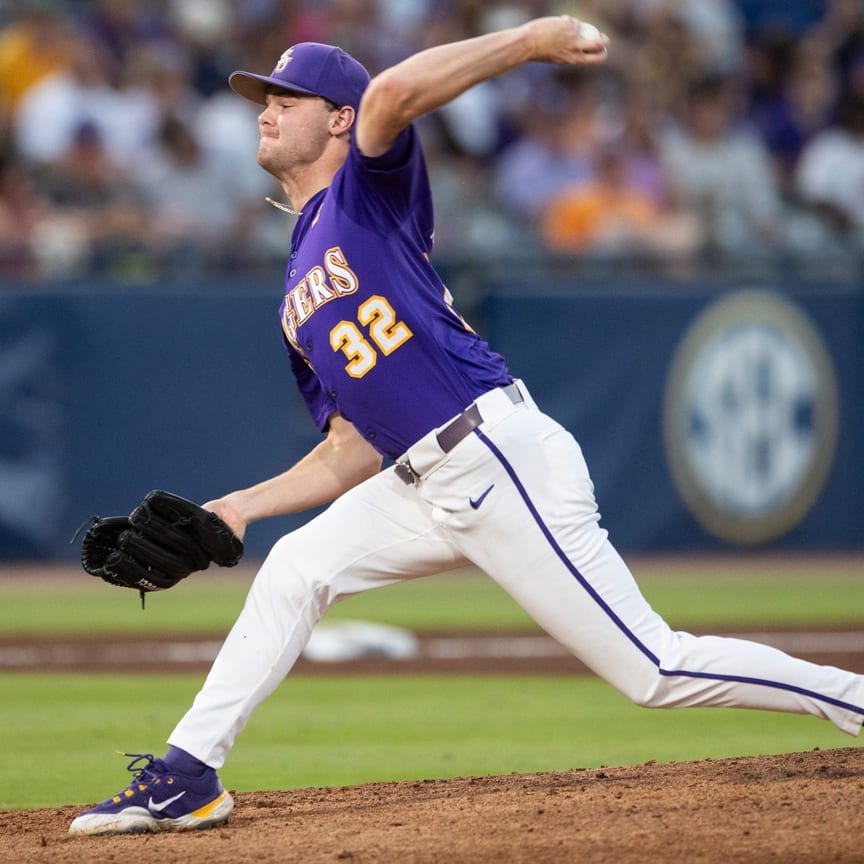July is one of the most exciting months of the MLB season. The trade deadline is fast approaching on July 31 and before we know it, many players will find new homes. Some players' fantasy value will suffer as a result of being traded, or simply being part of a team that made a deal. Others will find themselves in much improved situations. A trade could open playing time for someone who was buried on the depth chart when the season started. Or a player can move to a more favorable hitting or pitching park. In any event, trades aren't the only thing that will captivate our attention. Hot streaks, cold spells, injuries and minor league promotions are forthcoming, so fasten your safety belts and secure your loose items to prepare for one of the wildest roller coasters imaginable over the remaining three months of the season.
Whether you're leading your league, a few spots behind, sitting middle-of-the-pack or buried in the standings, it's important to remember there's PLENTY of season left. A lot can happen, so don't give up just yet!
I was going to offer some advice in this article, but RotoWire's Scott Jenstad really said it best last summer in his Oak's Corner series. To summarize, the All-Star Break is a perfect time to take a hard look at your team(s) and figure out a strategy for the rest of the season. Be mindful of your positional and categorical needs and always be ready to take action,
July is one of the most exciting months of the MLB season. The trade deadline is fast approaching on July 31 and before we know it, many players will find new homes. Some players' fantasy value will suffer as a result of being traded, or simply being part of a team that made a deal. Others will find themselves in much improved situations. A trade could open playing time for someone who was buried on the depth chart when the season started. Or a player can move to a more favorable hitting or pitching park. In any event, trades aren't the only thing that will captivate our attention. Hot streaks, cold spells, injuries and minor league promotions are forthcoming, so fasten your safety belts and secure your loose items to prepare for one of the wildest roller coasters imaginable over the remaining three months of the season.
Whether you're leading your league, a few spots behind, sitting middle-of-the-pack or buried in the standings, it's important to remember there's PLENTY of season left. A lot can happen, so don't give up just yet!
I was going to offer some advice in this article, but RotoWire's Scott Jenstad really said it best last summer in his Oak's Corner series. To summarize, the All-Star Break is a perfect time to take a hard look at your team(s) and figure out a strategy for the rest of the season. Be mindful of your positional and categorical needs and always be ready to take action, be it through waiver additions or trades. One thing Scott mentioned that I can certainly attest to is playing from the top of your league standings can be just as difficult as getting back in the race. Always pay attention to the teams in contention and the moves they are making, as that information may help you hold onto your lead.
Before moving on to this week's risers and fallers, a quick reminder of how this column is meant to be used is in order. This is not an add/drop list, so don't go dropping Vladimir Guerrero Jr. or German Marquez for Kevin Newman based on seeing their names here. It's instead a discussion of players whose stocks appear to have meaningfully appreciated or depreciated in recent weeks.
RISERS
DJ LeMahieu, 2B/3B, Yankees: The Yankees boast plenty of star power, but the team's MVP at midseason is unquestionably LeMahieu. Elected as the American League starter at second base in his third All-Star appearance – his first in the AL – the former Rockie had a ridiculous week at the plate, going 15-for-24 (.625) with two home runs, 10 RBI and eight runs scored in five games. After hitting .395 in June, LeMahieu's season average is .345; highest in the AL by 20-plus points. A notorious lefty killer, his splits against right-handed pitching (.332/.377/.521) have improved in 2019, particularly in the power department with 10 of his 12 home runs coming against righties. Not only is he four homers away from a career high in the category, he leads the Yankees with 61 RBI while primarily serving as the team's leadoff hitter. Many wondered if LeMahieu would continue to be a fantasy asset away from Coors Field, but the veteran infielder has erased any doubts midway through his first season with the Yankees.
Jose Ramirez, 3B, Indians: Featured twice already in this column in the fallers section, Ramirez finally secures a spot as a riser by showing signs of life (a pulse, really) at the plate. J-Ram's batting average is still a paltry .214, but his .300/.391/.500 line the last two weeks is much more in line with what his fantasy owners expected in March. With seven walks and only one strikeout in his last 50 plate appearances, he's exhibiting tremendous discipline. Unfortunately, he still lacks in the power department (five HR), but last season Ramirez averaged five long balls per month from July through September. If he can regain that form in the second half of 2019, he'd have a shot at a 20/30 (HR/SB) season.
Manny Machado, 3B/SS, Padres: The Padres' $300 million acquisition entered June with a modest .259 batting average and .769 OPS. Those numbers dipped to .238 and .723, respectively, on June 11. Since that date, Machado has tore the cover off the ball and found his power stroke. In his last 16 games, he's 29-for-71 (.409) with 10 home runs, 23 RBI and 21 runs scored, while increasing his season batting line to .277/.352/.516. With 20 home runs this season, Machado is on pace to record his fifth consecutive 30-homer campaign. He has a good shot of surpassing 40 for the first time in his eight-year career. It might not be his last opportunity either, as he's still only 26.
Kevin Newman, SS, Pirates: Newman had his hitting streak halted at 19 games during Sunday's loss to the Brewers, but it's important to shine some light on his recent success. During the streak, the 25-year-old middle infielder hit .384 with nine multi-hit efforts, a 1.040 OPS and four steals. He even homered in three consecutive games after failing to record more than five home runs in any season in the minors. Newman's lack of hard contact (27.2 percent hard-hit rate) means he's unlikely to continue his power surge, but he could be a sneaky source of steals after swiping 28 bags in the minors last year. The Pirates' leadoff hitter was already relevant in 15-team mixers, but perhaps it's time to give him more attention in 12-team leagues as well.
Trevor Bauer, P, Indians: Five days after Bauer tossed the first shutout of his career against Detroit, he couldn't escape the fifth inning whilst allowing five earned runs against the same Tigers team. The 28-year-old rebounded in his latest start, however, fanning 12 Royals to remind his fantasy owners why they invested the early round draft pick. Yes, he's been maddeningly inconsistent at times, but Bauer sports a 2.30 ERA and 1.02 WHIP with a 31:7 K:BB in his last four starts (27.1 IP). It's a good time to get hot with two starts on tap this week at Kansas City and Cincinnati. Bauer has been especially sharp on the road this season with a 2.04 ERA.
FALLERS
Austin Meadows, OF, Rays: A month ago, Meadows was riding high with a .355 batting average and 1.094 OPS. He's drastically cooled off since, those figures dropping to .291 and .882, respectively. While those are good numbers overall, he hit .205 with no home runs in June, while striking out in 31 percent of his plate appearances. A thumb sprain sidelined Meadows for nearly three weeks earlier this season and it's possible his recent struggles could be tied to an aggravation of the injury. He could also just be hitting the proverbial "rookie wall" as he navigates through his first full season in the big leagues and opposing pitchers make their adjustments. No matter the reason, Meadows has been riding the pine against some southpaws recently, which is a trend to keep an eye on as we approach the All-Star break.
Austin Riley, 3B, Braves: Prior to the weekend series at Citi Field, Riley endured a particularly rough few weeks at the plate that saw his average drop almost 100 points, from .349 on June 1 to .266 on June 27. He still hit plenty of home runs during that span (five), but whiffed in 34 of his 103 plate appearances; a 33 percent clip. Riley left the park twice against the Mets, however, including a round-tripper against reigning NL Cy Young Award winner Jacob deGrom. He's now just one home run (14) shy of Bryce Harper (15) in about half as many games this season. While that's eye opening for more reasons than one, pitchers may have noticed the 24-year-old crushes fastballs (11 home runs, .290 XBA, .407 XWOBA) and struggles against breaking (three home runs, .234 XBA, .310 XWOBA) and off-speed (no homers, .179 XBA, .236 XWOBA) pitches. Riley's recent struggles may correlate with pitchers making adjustments and throwing him fewer fastballs.
Vladimir Guerrero Jr., 3B, Blue Jays: While Meadows and Riley have paid huge fantasy dividends as rookies, Guerrero's owners are still waiting for that huge breakout week. The second generation star managed only seven extra-base hits and a modest .696 OPS in June. Guerrero's batted ball profile ranks slightly above MLB average overall, but compares to hitters like Trey Mancini, Nomar Mazara and Yandy Diaz. Those are good hitters, but none are superstars. Perhaps it's unfair to have such huge expectations for someone who was still a teenager just a few months ago. After all, any "regular" 20-year-old with eight home runs in 54 big league games would be firmly on our radars. Fortunately, there's plenty of time left in the season for Guerrero to pay dividends on your fantasy investment.
Edwin Diaz, P, Mets: Diaz imploded against the Phillies on Thursday, allowing five earned runs on three hits – two of which were homers – and two walks in a third of an inning to blow his fourth save of the season. The 25-year-old blew four saves all last season, so this is certainly not the type of performance that was expected of the first closer off the board in many fantasy drafts. Diaz ranks 11th among closers with 17 saves, but carries a 4.78 ERA and 1.38 WHIP with it. Only Wade Davis (5.76 ERA, 1.76 WHIP) has higher ratios among current closers. Diaz is still whiffing batters at a tremendous clip (14.6 K/9), but batters who make contact against him are hitting the ball hard. His 47.2 hard-hit percentage allowed is a whopping 12 percentage points higher than last season and puts him in the bottom four percent of MLB overall. Not surprisingly, that correlates with a huge spike in home runs allowed (2.0 HR/9 vs. 0.6 last season). The one thing working in Diaz's favor at the moment is that he has very little competition for closing duties in New York. His job may be secure, but recent results haven't been pretty.
German Marquez, P, Rockies: Marquez's 2019 home/road splits – 5.70 ERA, 1.60 WHIP at home vs. 3.06 ERA, 0.88 WHIP on the road – are really no surprise. Like most pitchers, he's always been far superior away from Coors Field. However, his home ratios are almost a full point worse than normal. A quick look into his Statcast numbers shows Marquez is taking the right approach with his pitch arsenal. His four-seamer has never been very effective, so he's throwing it far less often with a drop in usage of seven percentage points from 2018. That corresponds with heavier usage of his slider (23 percent, a seven percentage-point increase from last season) and sinker (13 percent, four percentage-point increase), however those pitches haven't been effective either. The opposition is hitting .246 with five home runs off the slider after struggling to a .162 average and two home runs in 2018. It might be wise to scrap the sinker entirely since batters are hitting .378 with four home runs versus the pitch. Marquez's best offering – the curve – is used 21 percent of the time; a slight drop from last year. And 51 percent of Marquez's strikeouts come via that pitch, and heavier usage may lead to better results, particularly at home








